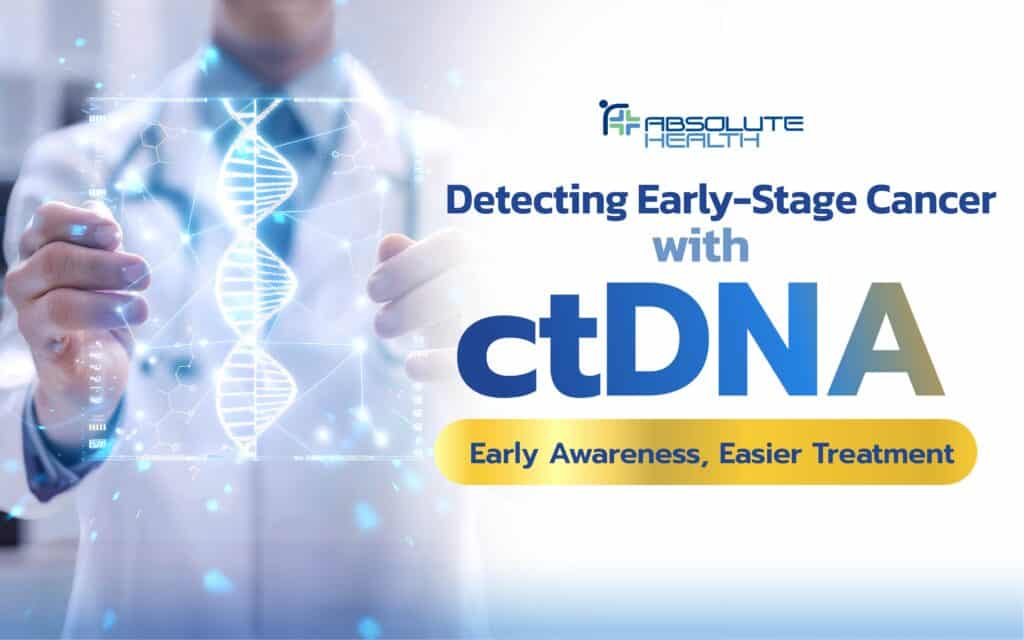Home / Medical Service / Innovation Check Up / Detecting Early-Stage Cancer with ctDNA: Early Awareness, Easier Treatment

Cancer is known as a “silent threat” because many people are unaware it is developing in their bodies. In its early stages, cancer often presents no noticeable symptoms. As a result, many patients are only diagnosed once the disease has progressed to an advanced stage, making treatment more complex, reducing the chances of recovery, and significantly increasing medical costs.
According to the World Health Organization (WHO), cancer-related deaths are expected to rise by more than 45% by 2030. Currently, over 70% of patients are diagnosed at late stages of the disease, which lowers survival rates and treatment effectiveness. This highlights the critical importance of early detection, which offers the best opportunity for effective treatment and improved survival.

Why Is Early Detection So Important?

What Is ctDNA Testing?
ctDNA (Circulating Tumor DNA) testing is a blood-based cancer screening method that detects genetic material from cancer cells circulating in the bloodstream. Using advanced Next-generation sequencing (NGS) technology, ctDNA testing can simultaneously identify mutations linked to multiple types of cancer. This enables early detection of abnormalities and helps determine specific cancer risks—without the need for surgery or tissue biopsy.


Advantages of ctDNA Testing

Advantages of ctDNA Testing

Important Consideration
ctDNA testing is designed only for individuals who have never been diagnosed with cancer and who show no current symptoms or warning signs of the disease.
A Step Toward Lifelong Health
Cancer does not wait for the right time. Early screening is the most valuable investment in life and health. ctDNA represents a breakthrough innovation that empowers us to “know sooner, prevent earlier, and improve survival rates.”